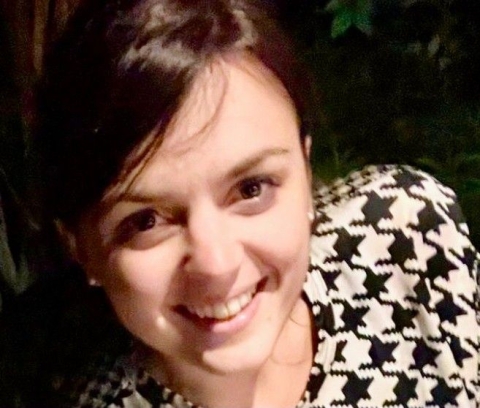

Dr Vincenzi’s work is focused on measuring the expansion of the Universe using a specific class of Supernovae, called Type Ia Supernovae
16 August 2022
5 min read
A PhD thesis which improves our understanding of the Universe and ‘its ingredients’ has won national and international accolades.
Dr Maria Vincenzi completed her thesis last year at the University of Portsmouth’s Institute of Cosmology and Gravitation.
Her work on the Dark Energy Survey (DES) – a project to make a map of a large part of the night sky – is considered central to achieving the survey’s science goals.
Dr Vincenzi has been awarded the annual Michael Penston Thesis Prize 2021 by the Royal Astronomical Society for the best doctoral thesis in astronomy or astrophysics, including astrochemistry, astrobiology and exoplanets.
Many past winners and runners-up have become leading figures in their respective fields.
She has also won the outstanding doctoral thesis award by the Universities Research Association (URA) and Fermilab, an annual award which recognises outstanding work for a thesis conducted at or in collaboration with the US Department of Energy’s Fermi National Accelerator Laboratory.
I’m very grateful for this recognition. The PhD was a great adventure and journey for me! Working within DES was a great opportunity to build a network of people I can learn and get support from. Moreover, the data collected by DES is just fantastic.
Dr Maria Vincenzi, Former PhD student
Dr Vincenzi’s work is focused on measuring the expansion of the Universe using a specific class of Supernovae, called Type Ia Supernovae. The main goal of her thesis was to quantify and model the effect that potential contamination from other classes of Supernovae (not Type Ia) can have on measurements of the cosmic expansion.
She said: “I’m very grateful for this recognition. The PhD was a great adventure and journey for me! First of all because I had the luck to learn from amazing scientists, starting from my PhD advisors Bob Nichol at the University of Portsmouth and Mark Sullivan at the University of Southampton.
“Second, because I was able to work in the Dark Energy Survey Collaboration, an international scientific collaboration that involves astrophysicists across the world. The survey was designed with the goal of improving our understanding of the Universe and its ingredients. Working within DES was a great opportunity to build a network of people I can learn and get support from. Moreover, the data collected by DES is just fantastic.”
In recognition of the importance of Dr Vincenzi’s thesis work and her diligence and strong leadership skills, she has been selected as Cosmology Lead of the DES Supernova working group and is in charge of the on-going cosmology analysis of the final DES-SN sample.
She added: “My research is focused on measuring the expansion of the Universe using Type Ia Supernova, and DES provided the deepest and largest set of high-quality Supernova data to date. During my PhD I worked on modelling and building the tools to analyse this dataset.
“I’m now a postdoc at Duke University. I’m still working on the DES data and I’m now leading the measurement of the expansion of the Universe using the DES sample. This will be the next, most accurate measurement of the expansion of the Universe using Supernova data and it will be a very important result for our field.”
I was fortunate to join Maria's supervision team shortly before she graduated. It was clear to me that she had the potential to go far, and I'm happy to see this confirmed by the Royal Astronomical Society. I'm excited to see what Dr Vincenzi will do next.
Dr Or Graur, Senior Lecturer in Astrophysics
Professor Bob Nichol, formerly of the University of Portsmouth who supervised Maria’s PhD before he moved to the University of Surrey in January, said: “Maria is an excellent astrophysicist who has not only won this prestigious UK award, but also another highly respected award across the Atlantic. It’s not every PhD thesis which gets endorsed by a Nobel prize-winner, but Marie achieved this; she impressed renowned expert on dark energy Adam Riess, who served as her external examiner, demonstrating the strength of her research. I’m delighted for Maria and this prize is well deserved.”
Dr Or Graur, Senior Lecturer in Astrophysics in the Institute of Cosmology and Gravitation, University of Portsmouth, added: “I was fortunate to join Maria's supervision team shortly before she graduated. It was clear to me that she had the potential to go far, and I'm happy to see this confirmed by the Royal Astronomical Society. I'm excited to see what Dr Vincenzi will do next."
Dr Vincenzi will receive a cash prize of £1,000 and an invitation to present her thesis results at an Ordinary (A&G) Meeting of the RAS. She also receives a certificate of recognition and $10,000 for the URA and Fermilab award.
